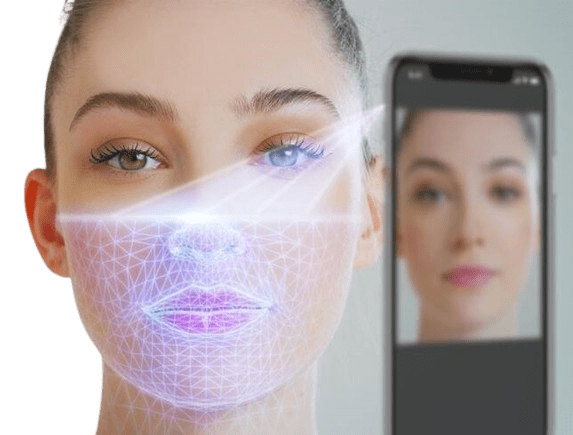
With a growing number of headlines suggesting breast implants may lead to cancer, it comes of no surprise that my patients have questions about their safety. To help you understand more about BIA-ALCL, the risk of developing this condition, and how it is treated, I’ve answered a few key questions on the subject.
What is BIA-ALCL?
Breast implant-associated anaplastic large cell lymphoma (BIA-ALCL) is not breast cancer. Rather, it is a rare type of non-Hodgkin lymphoma—a cancer of the immune system—that develops specifically inside the capsule of scar tissue that surrounds breast implants. The primary symptom of BIA-ALCL is late-onset breast swelling, a year or more after the implants were placed. BIA-ALCL typically does not move into surrounding breast tissues or affect other parts of the body when it is promptly discovered and surgically removed.
How many cases of BIA-ALCL have there been?
Since 2010, there have been 660 medical device reports of BIA-ALCL and nine fatalities. However, this number is not an accurate representation of confirmed cases since it was discovered that some patient cases were reported multiple times. As of February 2019, the FDA has determined that there have been an estimated 457 unique cases of BIA-ALCL, following an in-depth analysis of the reports.
While every case of cancer is one too many, it’s important for healthy women with implants to avoid undue worry and understand that the risk of developing BIA-ALCL is extremely small.
When considering the number of reports, it is important to take into account a few other statistics:
- Based on numbers from American Society of Plastic Surgeons (ASPS), over 2.6 million American women have had breast implants placed by ASPS member surgeons since 2010, when the FDA began accepting medical device reports related to BIA-ALCL.
- In 2018, over 300,000 women in the United States had breast augmentation performed, according to numbers provided by ASPS member surgeons.
While every case of cancer is one too many, it’s important for healthy women with implants to avoid undue worry and understand that the risk of developing BIA-ALCL is extremely small. With awareness of the low risks and knowledge of the symptoms to watch for, I hope patients with implants, or those considering them, can rest easier.
What causes BIA-ALCL?
While we do not definitively know the answer to this question, the ongoing research of this condition and examination of the medical device reports sent to the FDA present a strong theory: textured breast implants with greater surface area are associated with BIA-ALCL. Certain methods of texturizing create this greater surface area condition.
The most common, noticeable symptoms of BIA-ALCL include swelling or pain in the breast, excess fluid accumulation around the breast implant, or a rash on the breast skin.
The majority of reported BIA-ALCL cases have occurred in women who either currently have textured breast implants or have had textured breast implants at some point in their lives. For the small number of women diagnosed with BIA-ALCL who have smooth implants, they either had textured implants in the past or did not provide a history of breast surgery.
Should I have my breast implants removed?
It is not recommended that women with breast implants (even textured breast implants) have their implants removed prophylactically if they are not experiencing any signs or symptoms of BIA-ALCL. Surgery of any sort has risks, and if you are happy with the appearance of your breasts and symptom-free, breast implant removal is likely an unnecessary expenditure of your time, money, and physical wellbeing.
The most common, noticeable symptoms of BIA-ALCL include swelling or pain in the breast, excess fluid accumulation around the breast implant, or a rash on the breast skin. These symptoms can also occur for other reasons, such as capsular contracture, seroma, and low-grade infection.
If you are experiencing any of the above, I encourage you to schedule an appointment with your plastic surgeon. They will be able to determine what is causing your symptoms and develop a treatment plan accordingly. If your surgeon does suspect you may have BIA-ALCL, they will order diagnostic testing and imaging to confirm or rule out the condition.
How is BIA-ALCL treated?
Thankfully, BIA-ALCL can be successfully treated when caught early. Once a patient has been diagnosed with BIA-ALCL, a team of oncologists and your plastic surgeon will develop a treatment plan. Both your breast implant and the capsule of scar tissue surrounding it will need to be removed, either through en bloc capsulectomy (as one piece, removed intact) or total capsulectomy (breast implant removed first, then capsule removed).
In some cases, chemotherapy or radiation may be required, though implant and capsule removal alone usually rids the body of cancerous cells. You will be monitored over time to ensure the cancer is fully gone.
Remember to monitor your breast health
While BIA-ALCL poses a very small risk, it’s crucial to stay on top of your breast health. If you have silicone gel implants, it is recommended that you have an MRI screening three years after your initial surgery and every two years thereafter to screen for silent rupture and other complications.
Whatever type or style of breast implant you have, note anything that seems off or if any change has occurred. Breast implants are not lifetime devices, and the risk of developing complications increases as the implants age. If you have any concerns, contact your plastic surgeon right away.
I hope this article has helped you understand more about BIA-ALCL and perhaps even eased your mind about your health. I encourage my patients to contact my office in Eugene and schedule an appointment if they have any concerns. Your health is of the utmost importance—and that includes your peace of mind.

1 Comment Posted to "Will Breast Implants Give Me Cancer? An Update on BIA-ALCL"
I appreciate your posting of this information. It was helpful in my understanding. I will be seeing you soon for a routine check-up.